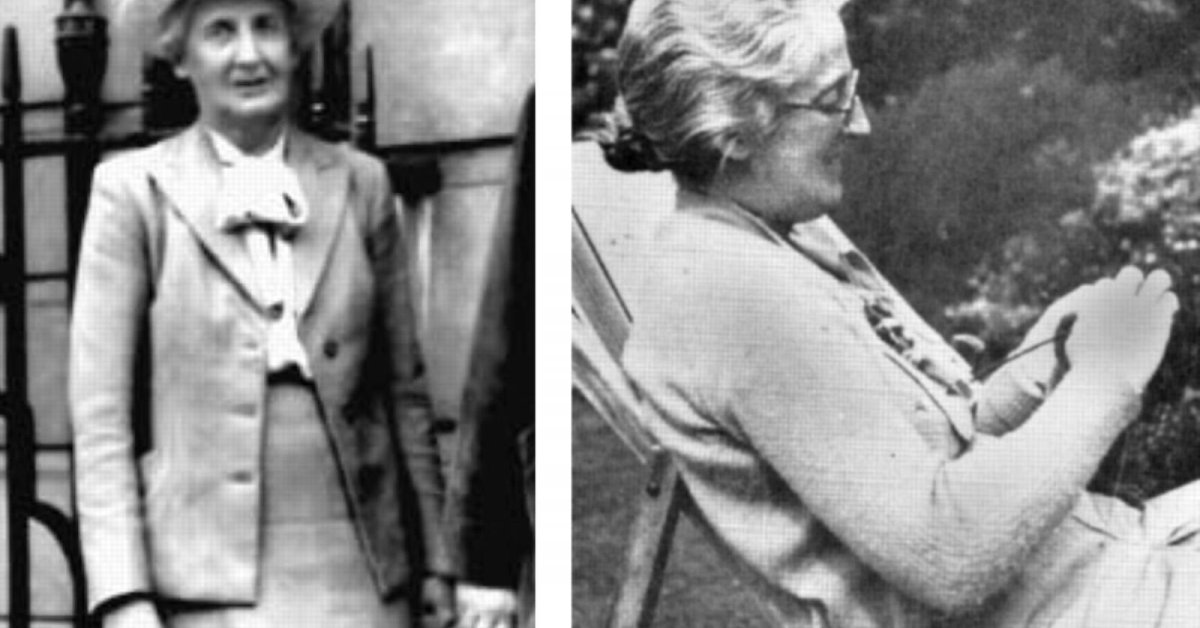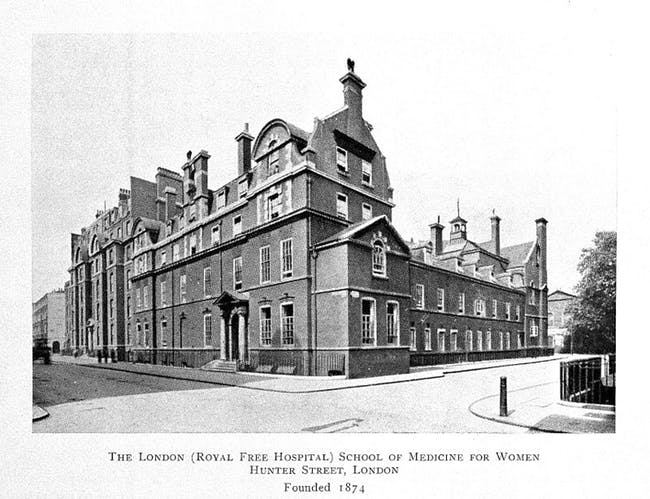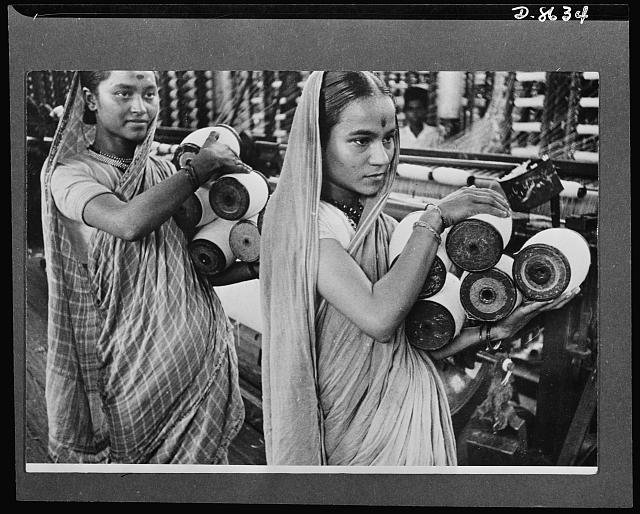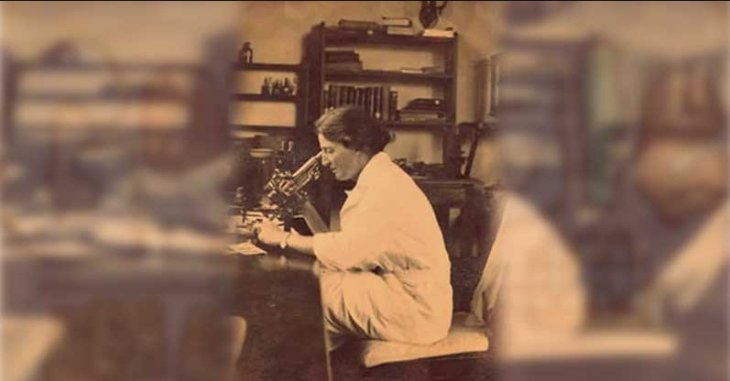Lucy Wills, The Scientist Helped Save Countless Indian Women's Lives
Harin - Dec 27, 2019

When she was in India, Wills observed that female textile workers who were pregnant were suffering from macrocytic anemia.
- 7 Inventions To Show How Great And Talented Black People Are
- How To Hack Others' Dreams? MIT Scientists Got The Answer
- 11 Female Scientists That Receive Special Honor From The Government
On May 10, 2019, Google Doodle honored Lucy Wills, a British hematologist from the 20th century who is remembered for finding in Marmite the nutritional gold to help pregnant women.

So, who is Lucy Wills? Most people know about Wills through her folic acid discovery. Folic acid is a B vitamin that can be found abundantly in Marmite. This acid is an important nutrient for pregnant women. Today, pregnant women are still recommended to have an intake of 400 milligrams of folic acid per day to prevent birth defects in the spine and brain. Wills’ legacy is defined by her contribution to science. Throughout her life, her attitude and achievement were both radical and inspiring.
In 1911, Wills finished her studies at the Newnham College in Cambridge, which was a woman's only college, with dual degrees in geology and botany. By 1920, she completed her studies at the London School of Medicine for Women which was England’s first medical school for women. In 1928, she traveled to Mumbai, India. Her trip led Wills to her biggest discovery.

When she was in India, Wills observed that pregnant textile workers here were infected with macrocytic anemia. People having that condition would have their red blood cells inlarged; however, those cells’ ability to carry oxygen is greatly depleted. Wills had conducted studies on women and had carried out experiments on animals. Through that, she discovered that poor diets could be the reason behind anemia. She then continued to do further experiments to show that there was an ingredient in Marmit that could help deal with the dangerous condition. She called it the “Wills factor” at that time. The ingredient was later identified as folic acid. Her results were published in the British Medical Journal’s 1931 edition.

Her trip to India did not only lead her to her folic acid discovery. It also helped shape her personality as well as pursuits outside the field of science, as said Barry G. Firkin, a professor from Monash University.
Her notes from her trip to India wrote about a society where social class deeply determined health. While female textile workers suffered from anemia, those middle upper-class women didn’t since they had more diverse diets. This, according to Firkin, strengthened her concern for social issues.

Her anti-establishment tendencies started to show themselves more. After World War II, she established a department for hematology at the Royal Free Hospital. She went to work every day on her bicycle.
Firkin, who is also a skier and mountain climber, said that Wills’ commitment to cycling was a symbol for her dedication to outdoor exercise as well as the environment. Dr. Daphne Roe, Wills’ student, talked about Will’s bike-riding as the one factor emphasizing her difference from other physicians.
In 1978, she wrote:
In 1947, Wills retired from her position at the Royal Free Hospital. Before her death, Wills worked as the Chelsea councilor of the British Labor party. There are not many records about her political career.
However, in her obituary which could be found in the British Medical Journal, it is stated that Wills had a strong belief in social questions and felt impatient with half-baked opinions and laziness.
This year, Google decided to celebrate Lucy Wills' 131st birthday, the scientist who made a critical finding for maternal health.
Featured Stories

Features - Jan 29, 2026
Permanently Deleting Your Instagram Account: A Complete Step-by-Step Tutorial

Features - Jul 01, 2025
What Are The Fastest Passenger Vehicles Ever Created?

Features - Jun 25, 2025
Japan Hydrogen Breakthrough: Scientists Crack the Clean Energy Code with...

ICT News - Jun 25, 2025
AI Intimidation Tactics: CEOs Turn Flawed Technology Into Employee Fear Machine

Review - Jun 25, 2025
Windows 11 Problems: Is Microsoft's "Best" OS Actually Getting Worse?

Features - Jun 22, 2025
Telegram Founder Pavel Durov Plans to Split $14 Billion Fortune Among 106 Children

ICT News - Jun 22, 2025
Neuralink Telepathy Chip Enables Quadriplegic Rob Greiner to Control Games with...

Features - Jun 21, 2025
This Over $100 Bottle Has Nothing But Fresh Air Inside

Features - Jun 18, 2025
Best Mobile VPN Apps for Gaming 2025: Complete Guide

Features - Jun 18, 2025
A Math Formula Tells Us How Long Everything Will Live
Read more

Mobile- Feb 17, 2026
Anticipating the Samsung Galaxy S26 and S26+: Key Rumors and Specs
The Samsung Galaxy S26 series is on the horizon, sparking excitement among tech enthusiasts.

ICT News- Feb 15, 2026
X Platform Poised to Introduce In-App Crypto and Stock Trading Soon
X has been laying the groundwork for this expansion.

Mobile- Feb 16, 2026
Xiaomi Launches Affordable Tracker to Compete with Apple's AirTag
For users tired of ecosystem lock-in or high prices, the Xiaomi Tag represents a compelling, no-frills option that delivers core functionality at a fraction of the cost.
Comments
Sort by Newest | Popular